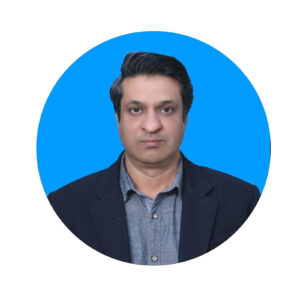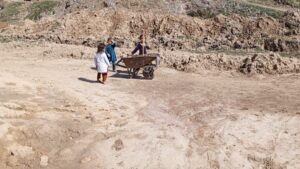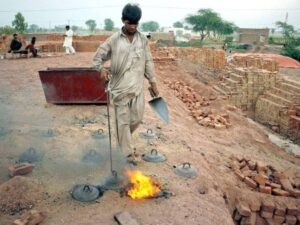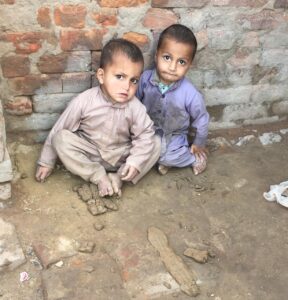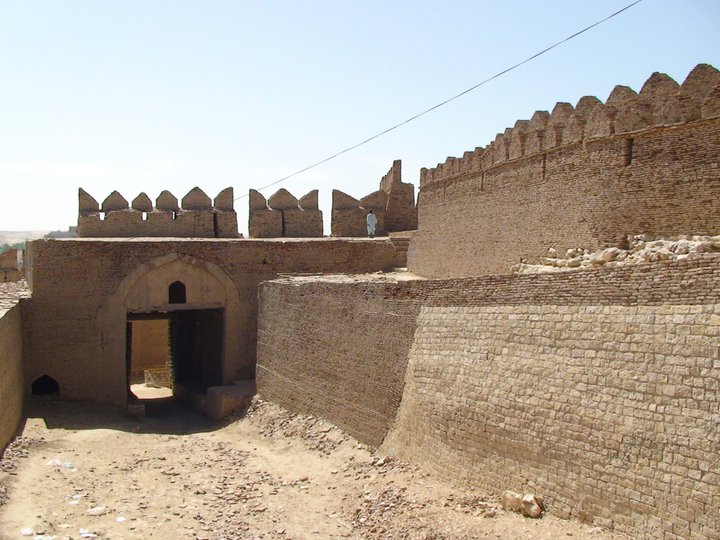Plight of Kiln Workers in Pakistan: Generational Debt and Health Hazards

Kot Diji Fort: A Majestic Journey Through History and Strategic Brilliance
December 28, 2023Plight of Kiln Workers in Pakistan: Generational Debt and Health Hazards
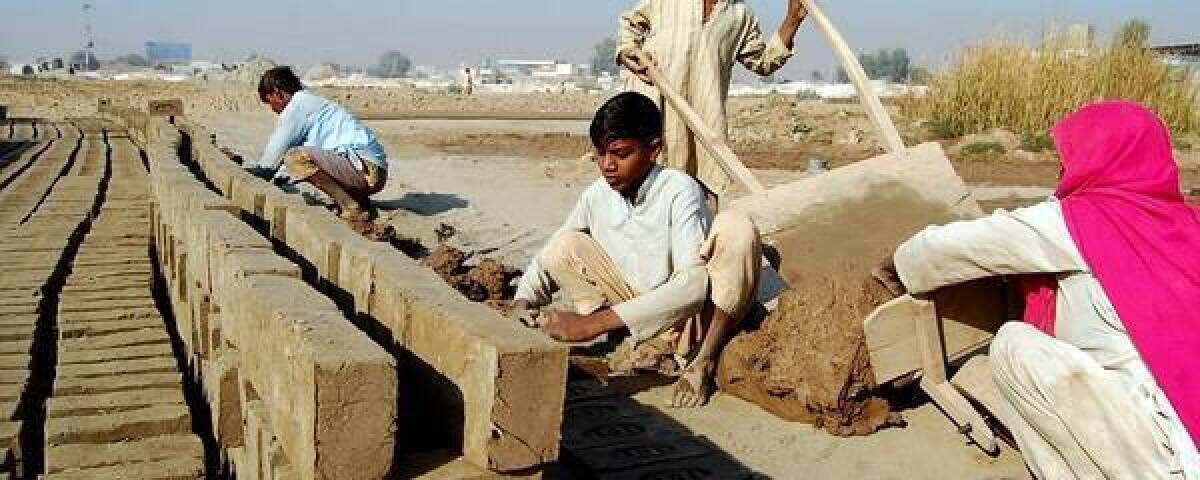
(Shoaib Nizami)
The harsh reality of kiln workers in Pakistan unveils a tale of perpetual debt and dire health conditions. Despite toiling day in and day out, these workers find themselves ensnared in a cycle of poverty and illness, with their future generations inheriting the same fate.
According to accounts from workers in kilns located near Islamabad, families laboriously produce bricks, earning a meager sum of 1200 to 1500 rupees per day, equivalent to one rupee per brick. However, a staggering 50% of their earnings are deducted to repay loans, leaving the entire family with a paltry income of Rs 500 to Rs 600 per day.
Why kiln workers are indebted for generations?
Shockingly, debts incurred by kiln workers often linger for generations. Ghulam Shabbir, a seasoned kiln worker, illustrates the grim reality as he recounts a loan taken two decades ago that remains largely unpaid despite years of labor. His daughter, now 18, is poised to inherit the burden of debt as the cycle continues unabated.
In Pakistan, Bricks kilns are built far from cities, so health facilities are far from them. Due to unfavorable conditions, they cannot even get treatment, until the disease worsens and becomes fatal, they keep trying home remedies for treatment, then it is found that the disease has become the cause of death, then expenditure of the body is buried and some time extra transportation and fare charges to be face as the body is buried in their native area. So to meet these expenses they borrow more money and never rid off Debts. This is the story of every other family working at a brick kiln.
Fayyaz said that the debt of Ruprees 200,000 was not cleared in 20 years because his father suffered from asthma due to inhaling dust in his lungs while working at the kiln, polluted smoke from the kiln chimney and drinking substandard water also causes illness. The labor at the kiln was very low paid and they can not afford good private medical treatment and they never covered by medical insurance, so the disease kept getting worse and worse.
The dire situation is exacerbated by abysmal healthcare access. Kilns are typically situated far from urban centers, depriving workers of adequate medical facilities. Compounded by exposure to hazardous working conditions including dust inhalation and polluted air, illnesses often go untreated until they reach critical stages, pushing families further into debt to cover medical expenses.
Why kiln workers men and women and children mostly sick?
Women, children, and the elderly endure the brunt of these dire circumstances. Pregnant women are forced to work in hazardous conditions without access to prenatal care, leading to high rates of maternal and infant mortality. Lack of clean water and sanitation facilities further exacerbate health risks, perpetuating a cycle of poverty and illness among future generations.
There is no medical facility and medical insurance for women working in kilns. These women also make bricks during maternity. Mortality rate in these Bricks kiln working women is very and That is why one to two children of every woman die at birth and she considers it her luck and then goes to work for bread and butter support of her family. A woman working at a kiln whose children are 18 and 16 years old and working with her at the kiln, was surprised to know that the mother during pregnancy had a monthly check-up, she had never facilitate for doctor checked during pregnancy. The women working in the kiln, these children and the elderly do not have any filter plant, they drink substandard water, so they get sick again and again. Therefore, their children become victims of food insecurity.
In the goal of the United Nations SDGs, the maternal mortality rate has been set to 70 per 100,000 women worldwide by 2030.
Child Stunting, the next generation of kiln workers are also malnourished
The World Bank’s recent report underscores the severity of the situation, highlighting widespread food insecurity and malnutrition among children in Pakistan. With nearly half of child deaths attributed to lack of adequate nutrition, the vicious cycle of poverty and illness continues unabated.
In its report released in October 2023, the World Bank revealed that 40 percent of children in Pakistan are food insecure, while 50 percent of the water fed to children in Sindh contains bacteria. According to the World Bank report, clean water is not available for most of the children under 5 years of age in Pakistan, there is no toilet facility for most of the children under 5 years of age in Pakistan, most of the children under 5 years of age in Pakistan also graze cattle. are According to the report, the first 1000 days after birth are very important for the mental health of the child, 80% of the child’s mind is formed in the first 1000 days after birth, 45% of the deaths of children under 5 years of age in Pakistan are due to lack of food. According to the report, malnourished children become addicted to eating soil, malnourished children also eat soil that includes cattle dung. Helping their parents in the brick kiln, these children also suffer from malnutrition because they do not have enough food to eat, clean water to drink.
Framework of SDPI and expectations from newly elected federal and provincial governments in Pakistan in achieving the goals of UN SDGs.
In response to these challenges, the United Nations’ Sustainable Development Goals (SDGs) provide a framework for addressing fundamental rights and improving the well-being of all citizens. Key objectives include ensuring clean water, sanitation, healthcare, and education for workers and their families.
Pakistan is also committed to implementing a framework on the UN SDGs. These SDGs goals and its framework relate to the provision of fundamental rights to all citizens living in Pakistan. The goals of these SDGs are a formal framework for implementation, with SDG 8, SDG 12 and SDG 13 being the goals that must improve the working environment for workers. That is, they get clean drinking water, washroom facilities, no environmental pollution, may they have access to health and education for their children.
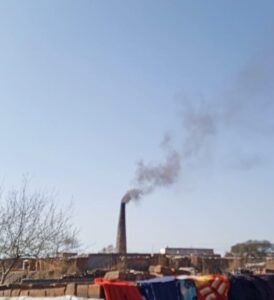
This framework for workers includes implementation of labor laws, their comprehensive registration in National labor force survey and registration in EOBI for them etc.
(SDPI) to implement UN SDGs and International Labor Organization (ILO) Conventions.
‘Socially and Environmentally Compliant Brick Kiln Framework’ (SECBKF) has introduced a framework for kiln workers according to the social and environment. In which an atmosphere will be created between the kiln owners and the workers to sit down and decide the action plan. Under the framework, the problems of the kiln workers will be created. Bilateral arrangements will be made to deal with it so that Pakistan can implement the agreements and promises made at the local and international level by abolishing the labor laws on the kiln workers as well.
The upcoming federal and provincial governments in Pakistan are tasked with implementing policies aimed at achieving these SDG targets. Promises made by political parties to enact labor laws, provide healthcare and pension schemes for workers, and ensure basic amenities must be translated into action to break the cycle of poverty and illness plaguing kiln workers in Pakistan. The nation’s progress hinges on prioritizing the well-being of its most vulnerable populations and fulfilling its commitment to sustainable development and social justice.
Before Feb 2024 elections, the three major parties, PML-N, PTI, and Pakistan Peoples Party, have promised to implement the ILO Labor Law Implementation Framework in their manifestos. In which labor card and health card will be made for them. In this framework they will be registered in EOBI, a pension scheme will be introduced for them, relevant targets of SDGs will be achieved. Now it is to be seen who among the three parties executes first.


